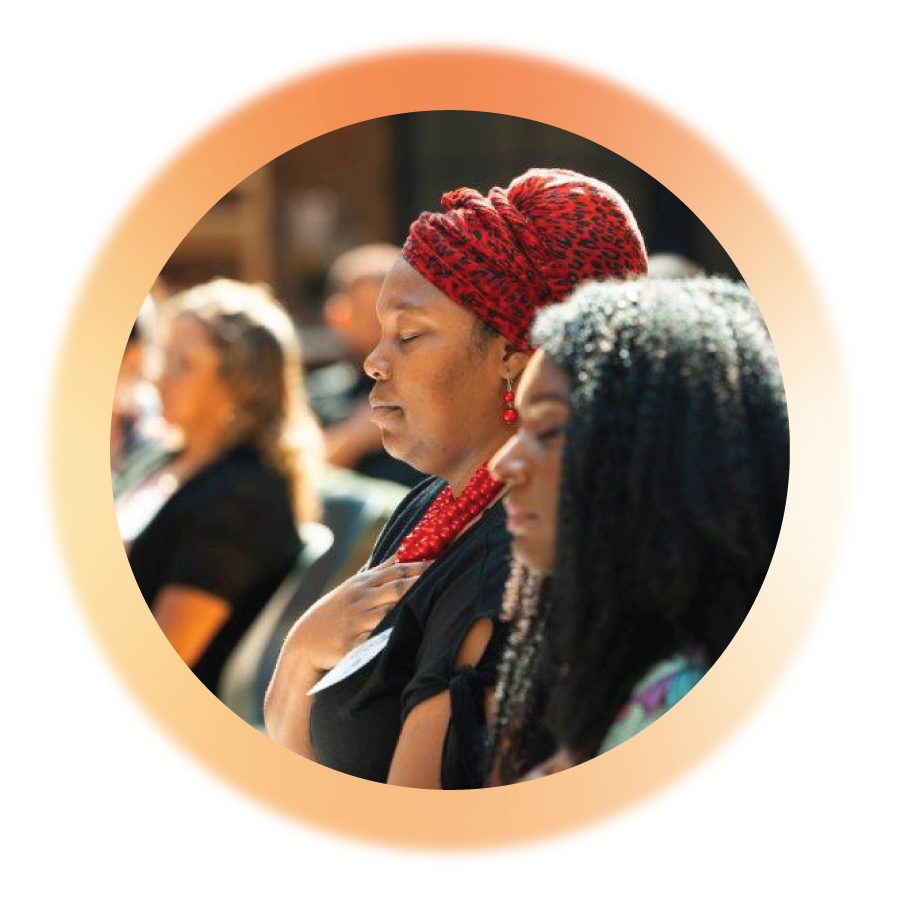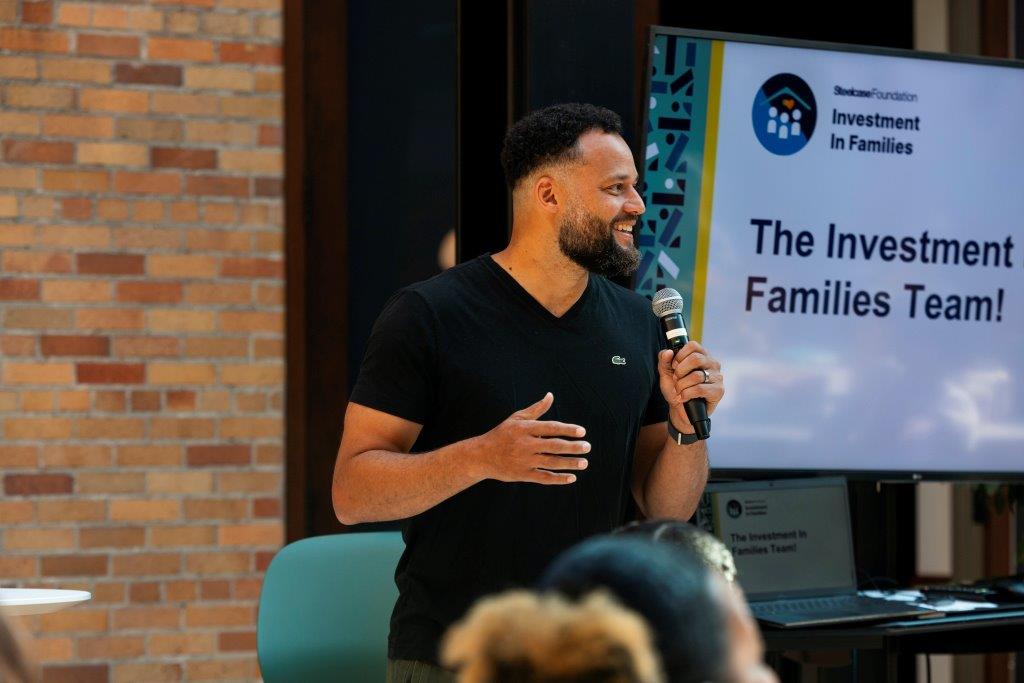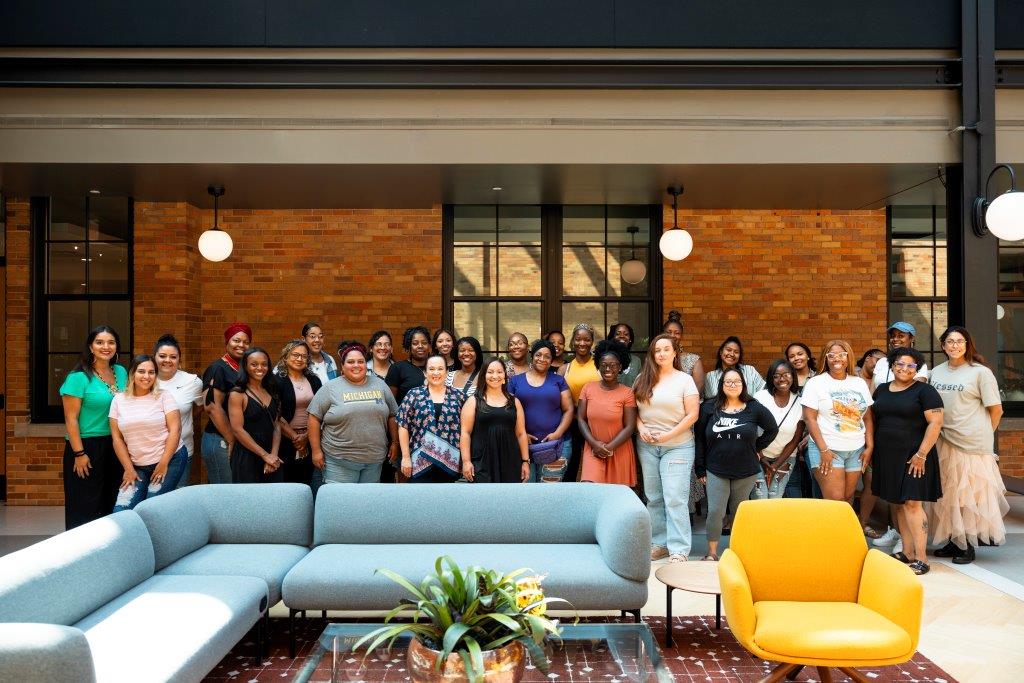Community Feature
Long-Term Goals and Emerging Strategies: A 10-Year Journey Begins with Kent County Mothers

In January 2024, the Steelcase Foundation announced its Investment in Families Initiative, a 10-year commitment to reshape systems and policies to better serve Michigan families. At the heart of this transformative effort is a cohort of 30 mothers in Kent County—each raising children aged 12 or younger—whose lived experiences are shaping the path forward.
Daniel Williams, President and CEO of Steelcase and CMF trustee, underscores the importance of proximity and trust in this work.
“Being in community with, and trusting those most impacted by unjust systems is vital. When we listen and learn from family leaders, we’re able to build stronger, more cohesive strategies that open new opportunities for families to flourish,” Williams said.
Amid a national backdrop of eroding protections and support, the initiative offers something powerful: hope, healing, and partnership.
“Many communities are hurting,” Stacy Stout, director of family-centered philanthropy at the Steelcase Foundation, said. “This initiative creates a nourishing space where mothers can connect, grow, be seen and heard—and co-create the collective change we all need.”
The initiative was officially launched in August 2024, with support from community partners and the foundation’s research team, DataWise Consulting. Its aim is both clear and emergent: understand how systems impact families over time and co-create responsive campaigns for change. The learning will also shape the foundation’s strategies and investments as the journey progresses.
One of the initiative’s core components is guaranteed basic income (GBI)—monthly cash payments to all cohort partners. GBI has proven effective in reducing the stress from poverty-inducing policies, lessening the heavy cognitive load upon recipients, and giving families breathing room to focus on long-term planning and engage in systemic change.
“We provide direct cash payments to cohort partners as a harm reduction strategy,” Williams said. “While we work together to change the systems causing the harm, the GBI payments help reduce its impact in real time.”
The results are already tangible. The initiative coordinator, based at the Grand Rapids Women’s Resource Center, meets regularly with cohort partners and has noted common themes in their aspirations. With financial stress eased, the cohort mothers are pursuing long-term educational, financial wellness, and health goals.
“Now that they receive reliable monthly GBI payments for the full 10-year experience, they aren’t rushed or pressured into only short-term planning. They can set their sights on long-term goals for themselves and their families,” Stout said. “They’re pursuing degrees for greater job stability, prioritizing wellness as a foundation for success, and setting financial goals beyond day-to-day survival. Many expressed a desire to eventually save for retirement and learn how to create generational wealth.”

Daniel Williams
President & CEO
Steelcase Foundation
“The mothers partnering with this work are more than participants. They are policy architects, narrative shapers, and agents of generational change. Their vision, insights, and leadership are setting the pace for what’s next,” Williams said.
Educationally, many mothers are revisiting dreams once deferred due to financial barriers—completing nursing, communications, or medical billing programs. One participant recently earned her real estate license, a milestone made possible by newfound financial stability.
Financial freedom is another widespread ambition. Cohort members are paying off debt, building emergency funds, and boosting credit scores. One mom set a goal to save $500 by the next cohort gathering. Another teamed up with the initiative coordinator to read a woman-authored financial book, holding each other accountable along the way.
Mental health and self-care are also emerging as central priorities. With reduced financial pressure, moms are reclaiming time for therapy, medical appointments, and personal well-being. One mother, after years of delaying care due to cost, scheduled long-overdue doctor visits—and plans to reward herself with a new book to celebrate this act of self-investment.
These goals, though diverse, share a common thread: they are rooted in agency, self-determination, and the belief that lasting change is possible.
The decade-long timeline of the initiative is intentional.
“Ten years gives us space to build relationships, foster trust, and prepare for the unknown,” Williams said. “It gives families time and power to define their own success.”
Williams shared that Steelcase Foundation’s role is not to dictate outcomes but to support, listen, and act.
“Philanthropy must help identify systemic barriers and, in partnership with families and systems leaders, redesign how those systems operate—to better serve Michigan families,” Williams said.
This work is grounded in a profound belief in the leadership of women. “They are family leaders managing home, work, and community expectations,” Stout said. “We honor their agency and personhood by investing in them directly, with trust at the core.”
Collaboration with cohort partners has been essential from the start. Two advisory groups—the Narrative Advisory Group and the Research Advisory Group—were created to reflect the importance of shared leadership. Both include cohort mothers as decision-makers.
The Narrative Advisory Group, led by Bellwether Public Relations in partnership with Brigham Consulting, is a space for reflection, learning, and strategy around storytelling and narrative change efforts.
“We’re starting with our own internal narratives,” Stout said. “How we speak about women, mothers, and families influences public opinion and policy.”
Meanwhile, the Research Advisory Group, led by DataWise, is shaping how data is collected and used. The group recently helped refine two key surveys—one focused on social-emotional wellness, the other on financial well-being. With response rates of 100% and 97% respectively, the data will guide the initiative’s next steps and inform broader systemic insights. The data for both surveys is currently being analyzed, and the foundation will have more to share soon.
As the 10-year journey unfolds, the Investment in Families Initiative is already showing what’s possible when philanthropy shifts from transactional giving to transformational partnership. When system leaders listen deeply, redistribute resources equitably, and trust those most impacted, change takes root—not only in individual families, but within the systems that shape their lives.
“The mothers partnering with this work are more than participants. They are policy architects, narrative shapers, and agents of generational change. Their vision, insights, and leadership are setting the pace for what’s next,” Williams said.

Daniel Williams, president & CEO of Steelcase Foundation and CMF trustee

Cohort mothers at an Initiative gathering